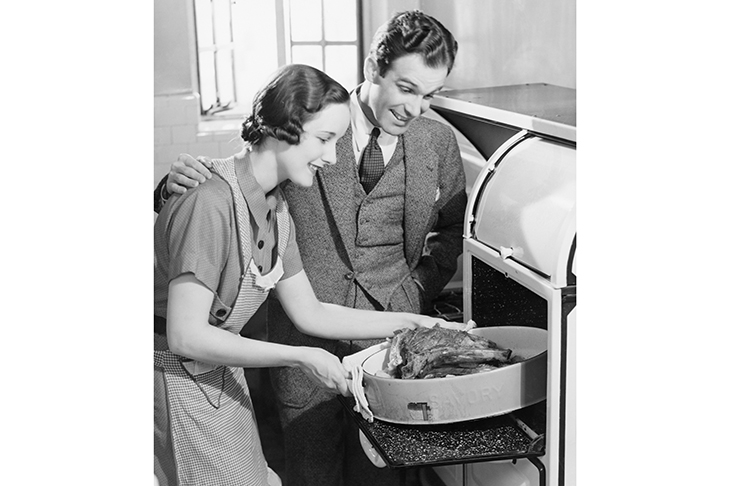My husband tried to identify in Britain’s 2011 census as ‘housewife’. Luckily I grabbed the form when he had dozed off and put him down as ‘economically inactive’.
At bottom, housewife is no more demeaning than husband. Husband is compounded of the elements hus, ‘house’, and bond, ‘householder’. Housewife has the elements house, ‘house’, and wife, ‘woman’. (Woman itself comes from wife, meaning ‘woman’ and man, meaning ‘human being’.) These words have a rich history.
Housewife is now almost impossible to use. Yet Housewives’ Choice, on the wireless from 1946 to 1967, when the BBC Light Programme was abolished, attracted audiences of eight million. Its theme tune, ‘In Party Mood’, is a shorthand for the days when saying housewife was not yet a hate crime.
The one case in which housewife can be used in print brings its own problems. It is the name for a little roll of material in which needles and thread are rolled up as a traveling kit. Servicemen were issued with hard-wearing khaki housewives.
But these were pronounced husif. If you spell the mending kit housewife, some readers will miss the meaning, and more will get the pronunciation wrong. It is a mark of keen readers to run into words they don’t know how to pronounce, especially words once common and now never heard, such as names for pre-decimal coins. Try millennials on words such as halfpenny and twopence, and many will be ignorant of the pronunciations haypenny and tuppence. For threepence, the Oxford English Dictionary gives the pronunciations thripents or threpents, but not throopents, with the first vowel like that in look.
During centuries of use, housewife meaning ‘woman in charge of a household’ was also sometimes pronounced husif. By the 16th century it was worn down to hussy, which developed a career as a term of opprobrium. Thomas Hobbes, in his translation of the Iliad, puts the word into the mouth of Venus scolding Helen. ‘“Hussie,” said she, “no more / Provoke my anger.”’
As a last name Husewif was used, from the 12th century, for men as well as women. Husband as a surname, by contrast, referred to husbandmen, not an occupation to which my husband can lay claim.

























